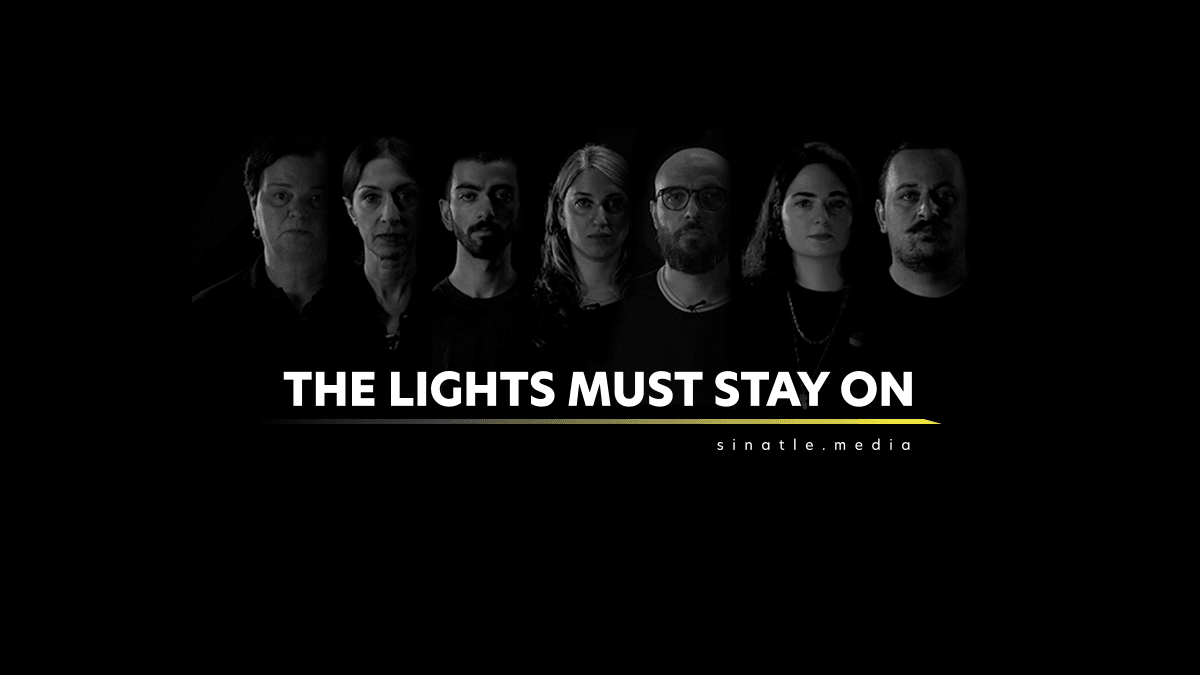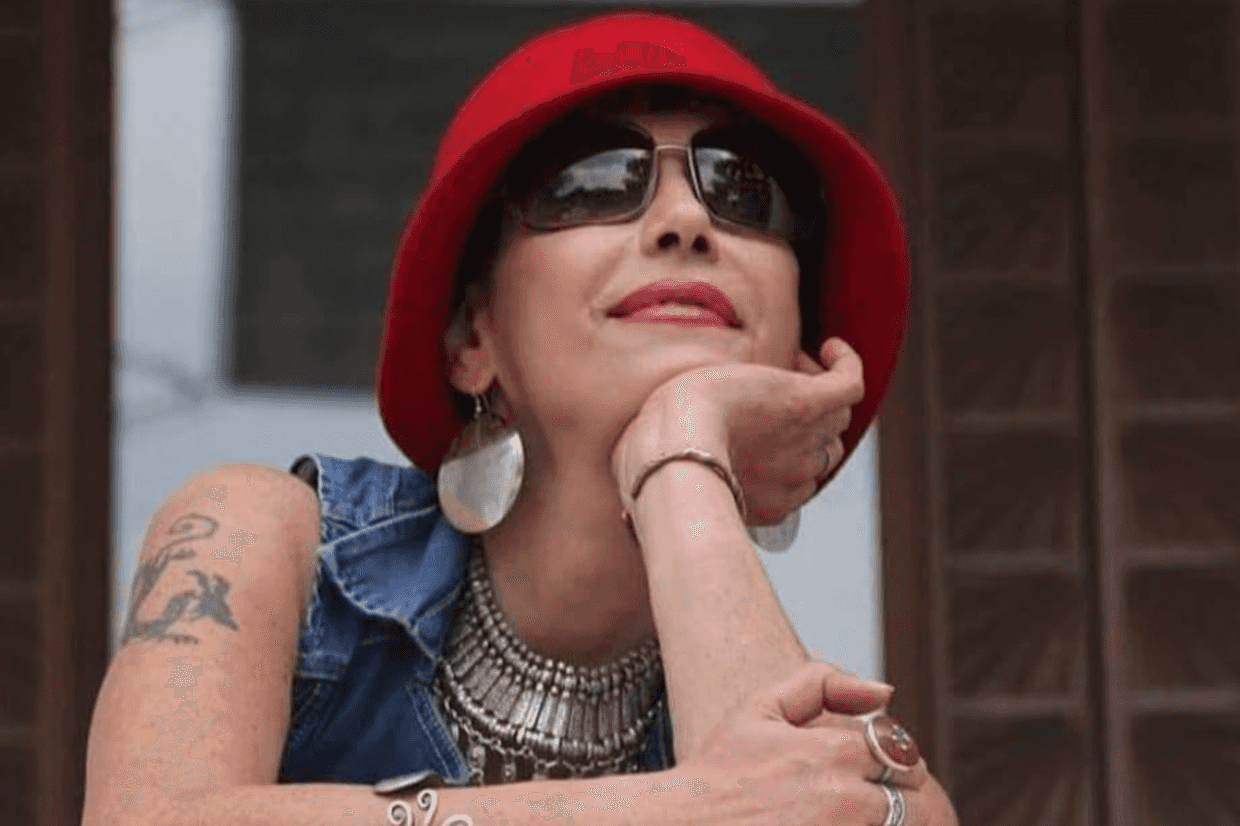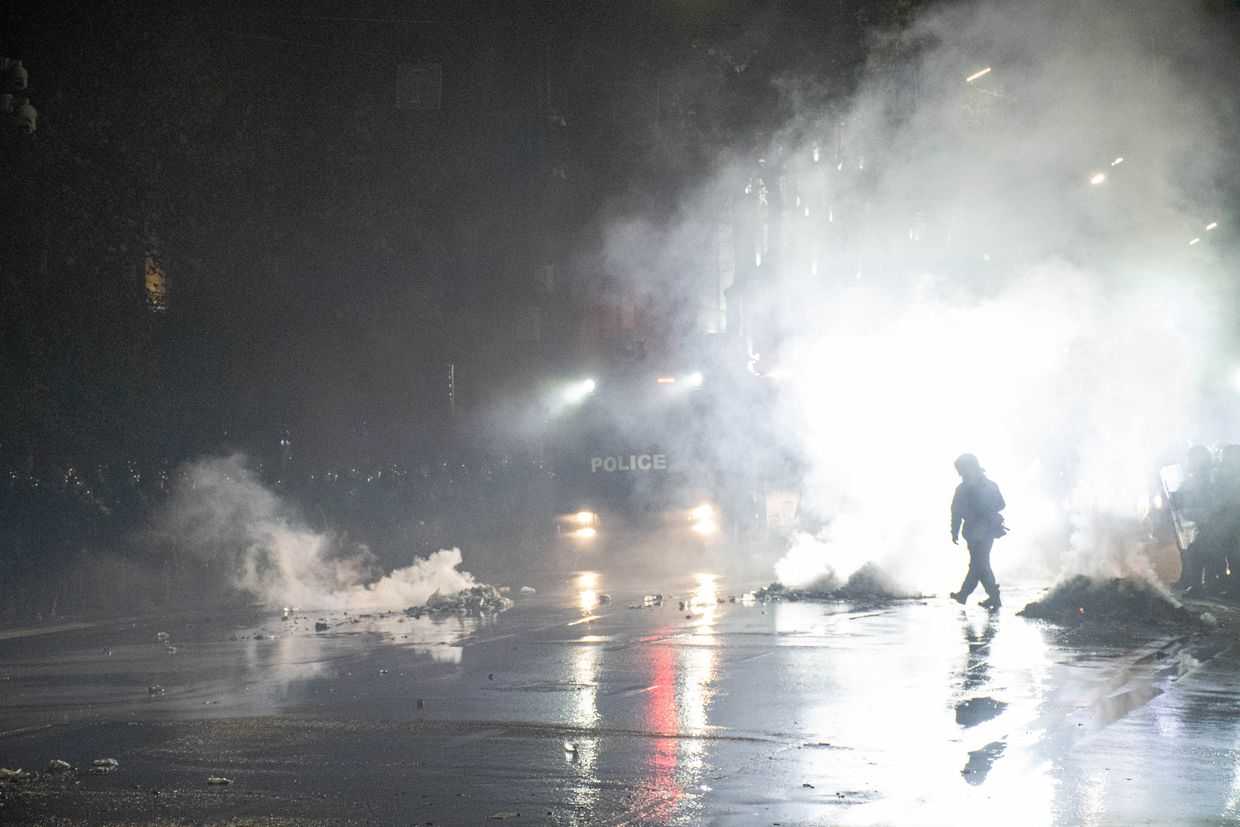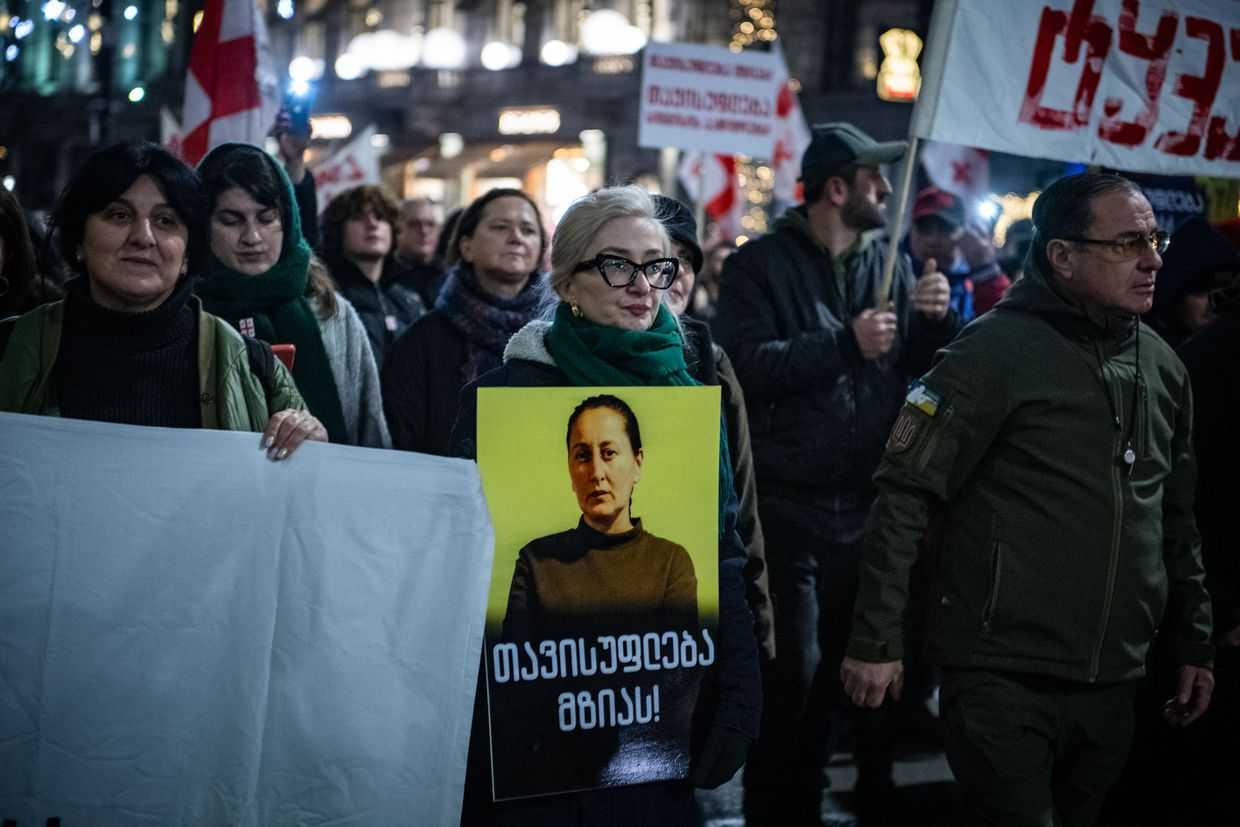
Twenty-one Georgian online media outlets temporarily went offline on Wednesday as part of a campaign to raise awareness over the state of press freedom in the country.
Popular sites such as Batumelebi and Netgazeti, founded by imprisoned journalist Mzia Amaghlobeli, Publika, and other national and regional sites became inaccessible at 13:30 on Wednesday.
When the sites returned at 16:00, visitors were greeted with announcements about a campaign titled ‘The Lights Must Stay On’, which included calls to donate to a shared fund to support Georgian media.
OC Media, which joined the campaign in a support capacity as the 22nd media outlet, donated $5,000 to the fund. OC Media will not receive any of the money raised.
Organisers said they intended to disprove the government’s repeated claims that Georgian journalists were ‘foreign agents’ working for Western interests by crowd-funding from local people. As such, they asked that foreign nationals not donate to the fund, citing concerns that accepting foreign contributions could be used by authorities to justify invoking the FARA law — that targets the media and civil society — against them.
OC Media co-founder Mariam Nikuradze, who appeared in promotional material for the campaign, said it was important for the media to stand together in the face of ‘rising authoritarianism’ in Georgia.
‘Ever since Georgian Dream began its rapid slide towards authoritarianism, we’ve seen the media stand together in solidarity. When police used force against us, we pooled resources to better equip ourselves with safety equipment. We united again when Mzia Amaghlobeli was arrested, mobilising every means to raise awareness about her case. Now, with Georgian Dream’s adoption of repressive legislation aimed at silencing us, the media once again stands together to survive,’ Nikuradze said.
Deteriorating media environment
The past two years has seen a rapid deterioration in press freedom in Georgia, including physical attacks and legal harassment by the government.
In April 2025, the government adopted what it said was a copy of the US’ FARA law, targeting what they said were ‘foreign agents’ under the control of foreign powers. Failure to comply with the law is punishable by up to five years of imprisonment, a fine of up to ₾10,000 ($3,600), or both. Critics fear it could be applied to journalists and media critical of the government.
Later that month, parliament tightened restrictions on the ability of domestic NGOs and media to receive grants from abroad.
This was followed by restrictions on media coverage of court proceedings, preventing journalists from filming inside court buildings and the area outside. Before that, in 2023, the media were restricted from covering parliamentary proceedings.
Other amendments also included imposing ‘coverage standards’ for TV stations.
During the popular protests against the government’s EU U-turn in December 2024, media workers were repeatedly attacked by groups of unidentified, masked individuals and by law enforcement, or prevented from reporting by the authorities. No one was held accountable.
Journalists have also been fined for covering the protests, including OC Media’s Mariam Nikuradze, who has received four fines for ‘blocking the road’ while covering the protests.
In August, Mzia Amaghlobeli was sentenced to two years in prison after slapping Batumi’s police chief during a heated exchange, a move widely seen as politically motivated.









